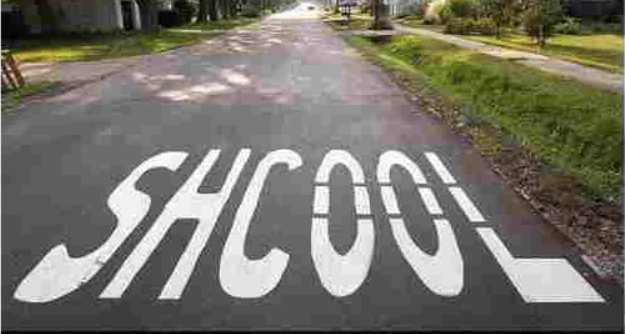
Since childhood I hated writing: my spelling was dreadful, I always messed up grammar, and struggled proofreading my own writings. During my school years, I avoided writing as much as possible. I majored in engineering and focused on math and science. In college it was easy to hide my weakness. Once school was over, I figured I would be in the clear for the rest of my life.
I was wrong. Even in a technology career, I needed to communicate clearly. Over the years, I needed to write emails, documentation, manuals, etc. There were so many times that I was embarrassed by the stupid mistakes with my writing. In the professional world I wasn’t able to hide. My lack of writing skills became an increasingly larger obstacle as I advanced my career. The higher up in the corporate-world I advanced, the more writing I had to perform.
So how did I get better?
The first step was admitting I had a problem. For me that was hard. I was so bad at spelling that many times I couldn’t get close enough for the spell checker to work. Instead, I creatively selected synonyms to avoid hard-to-spell words. I avoided writing at all costs, especially while presenting to coworkers. It culminated in a disastrous product launch. Instead of writing the documentation myself, I delegated the work. The junior member that wrote the documentation had great writing skills but was terrible at describing our product. After taking my lumps and getting chewed out by the company’s top brass, I decided to do something about it.
The next step was to take a writing class. I took an online technical writing class, and believe it or not, I loved it. It was the first class that focused on writing as form of communication, as opposed to a work of art or some fluff piece to reach a word-count quota. I can summarize the class with: “Your reader is busy. Use as few words as possible to clearly communicate the information.” This spoke to engineering mind. I immediately changed my stance on writing. Instead of viewing writing as a chore, I tried to tackle as many writing tasks as possible.
Spelling Skills
The next step was to analyze my spelling. Instead of using synonyms, I forced myself to look up words. When struggling, I learned to use Google instead of spell checkers. All the terrible spellers, like me, had trained Google over the years to find the appropriate matches. I also started using mnemonics to spell tricky words. Instead of treating them like nonsense, as I did during school, I embraced learning with mnemonics. Words like ‘separate’ and ‘necessary’ would never trip me up again.
Finally, I discovered that I had dyslexia, which can make spelling a real chore. However, with that knowledge, I had new tricks for correcting my mistakes. As an example, words starting with ‘pre’ vs. ‘per’ used to trip the hell out me, but at least I knew why and could react to the mistakes quicker.
Hard Work
The last and most important step was hard work. Practice is the only way to master a skill. So, I wrote as much as possible. At work, I started enjoying writing. I received lots of positive feedback and eagerly accepted writing tasks. I still made plenty of mistakes, but got much better at spelling, proofing, and grammar.
It has always helped me to remember that even the best writers need help proofreading. Keep your head up, realize your limitations, and work to improve. Even if you have to work harder than others, you too can overcome the hatred of writing.
To see how far I’ve come, read Concordia, There Must be a Better Way and let me know your thoughts.

















